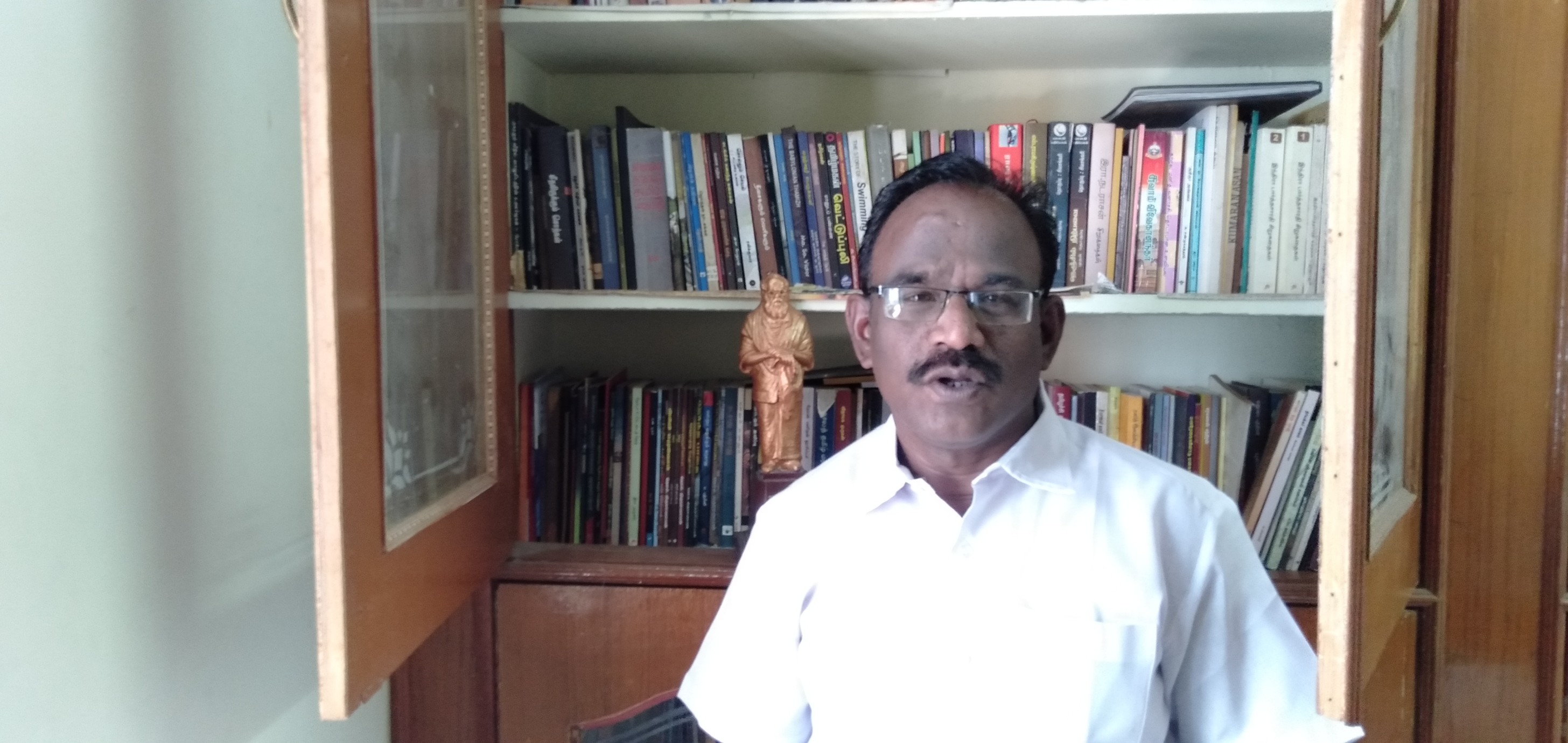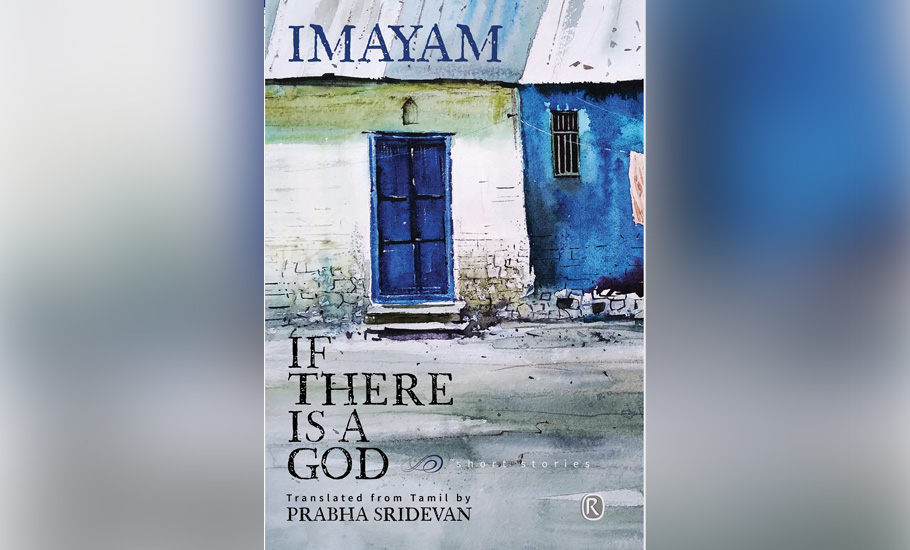
Tamil writer Imayam on female desire and why writing is a political activity
Imayam is the first Tamil writer to get the Kuvempu National Award. He talks about how the story writes itself and ends itself, being branded as a ‘Dalit’ and a DMK partyman, and why writing is not apolitical

“In me is the sky, in me lies the earth,” wrote Kannada’s reverential poet Kuvempu (1904-1994). The line demonstrates Kuvempu’s endeavour to store up and encompass an infinite range of emotions and larger truths about the cosmos in his poet’s mind — a receptacle to phrases and images.
In the case of Tamil writer Imayam, who has been selected for the 2022 Kuvempu National Award, there is a similar dynamic at work which shines light on the nature of his stories, which are mostly centered around women.
Imayam, 58, is the first Tamil litterateur to have been selected for the award, instituted by the Rashtrakavi Kuvempu Prathistana Kuppali in 2013. He will receive it at a function to mark the poet’s birth anniversary on December 29.
If There Is A God, published by Ratna Books, brings together 10 short stories by Imayam, published in Tamil at various points of time and in different magazines. They have been translated by Prabha Sridevan, former judge of the Madras High Court.
Also read: If you reject politics, you distance yourself from society: Writer Imayam
Though his novels have been translated into English earlier, it is for the first time that his short stories have been translated. The book was released a couple of weeks ago; at the event Imayam said it was his first book release function in 40 years.
Women’s emotional turmoil
Though women play a major role in all 10 stories, at least five stories grab our attention for their depiction of their emotional turmoil. The first story, Over in a Moment, was published in Tamil as Rava Neram. It is the story of a woman in her fifties who is unable to express her sexual desire.
Imayam writes: “You sympathise with the woman who drank poison, the girl who was the victim of an acid attack, the people in IT companies who lost their jobs and the families of the women who act in TikTok, but you will not spare a thought for the woman lying next to you. ‘Blockhead’, she said. In her married life of 21 years, this was the first time she had called him a blockhead. She felt like laughing at the thought. She turned to one side. She tried to recall when they had last had sex.”

Ratna Books
The desperation experienced by the woman protagonist in the story is seen in every household, Imayam tells The Federal. “This is the story for which I got nearly 50 phone calls perhaps because every man can see a similar situation unfolding in his house. I closely observe the lives of people I come across. They give me a lot of stories and hence I don’t need to imagine a story,” he says.
Also read: Meet the Japanese author who inspired ‘Drishyam,’ ‘Monica, O My Darling’
Imayam says he abandons the short story or the novel once he sends it to the press. “If they can, let them survive. The story writes itself. It ends itself. If it ends, that is not the climax. After that, it is the reader who truly ends the story. What the reader makes of it could become another short story or a novel,” he adds.
‘Looking at the world with his heart’
Similarly, two other stories, Santha (with the same title in Tamil) and The Dubai Man’s Wife (Dubaaikkaaran Pondaatti), deal with women’s sexual desire. Imayam never gets into moral policing or judgment, but constantly questions the society that tells the woman that expressing her sexual desire is wrong.
The titular story, If There Is A God (Saami Irunthaa Kekkum), is a sordid tale that revolves around the death of a school boy due to a sexual abuse by a male teacher. But it delineates the struggles of a single mother, who tries to make the teacher accountable, in vain. The story, A Government Corpse (Government Pinam), vividly portrays our lives and times during the COVID lockdown.
“Imayam looks at the world with his heart. He asks why and when we lost our tolerance. Why is it so difficult for us to live in amity with another?” writes Prabha Sridevan in her translator’s note.
Imayam admits that his stories start off with something he has heard or something that has happened in real life. He transforms that chunk of life into unforgettable literature. “His women are resilient, but when the structure of our society crushes them, some succumb,” Sridevan writes.
‘Writing is a vigorous political activity’
Imayam is one of the few writers in today’s literary milieu who have openly declared themselves as Dravidian writers. He proudly says he was a member of the Dravida Munnetra Kazhagam (DMK) even before the party came to power.
Also read: Muzaffar Ali: ‘Art in India needs a breath of fresh air and freedom’
“The members of the DMK, DK and the Left have told me to read. None had asked for my caste. Neither have I revealed it to them. In 1994, after the Beasts of Burden (Koveru Kazhuthaigal) was published, some writers spoke about my cast. In fact, it was a topic of debate for them. I am a ‘Dalit’ writer. I write ‘Dalit’ literature. I was tattooed with an indelible mark. Caste is the yardstick that some in Tamil use to evaluate literature. Like my birth and writing that were branded, a few writers also branded me as a ‘partyman’. Is literature apolitical?” he says.
Imayam adds: “Writing is a vigorous political activity. Writing is my politics. My writing is not apolitical. A work that doesn’t speak of socio-politics is not literature. Not a single letter of my writing has changed its character for the sake of political clout.”

